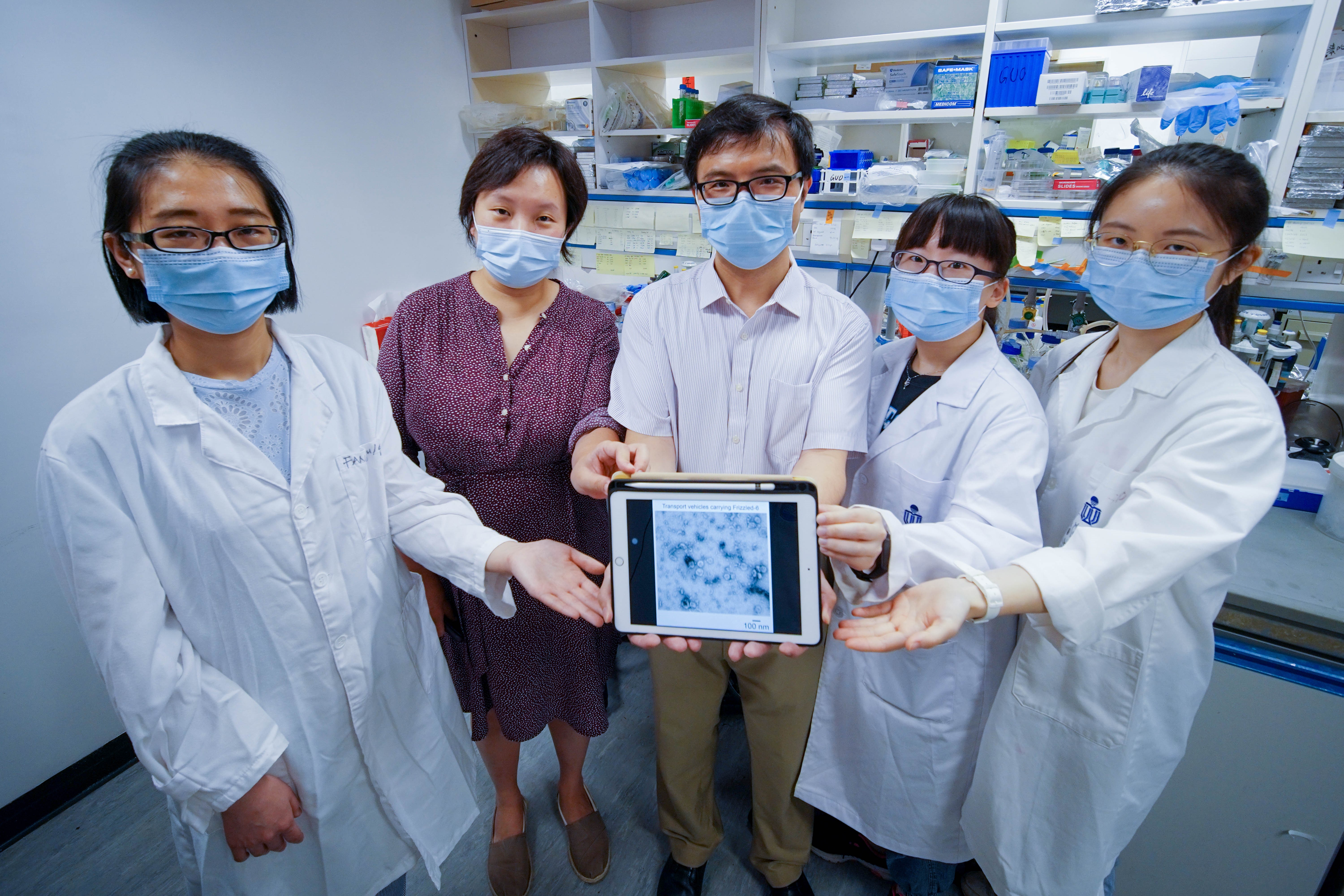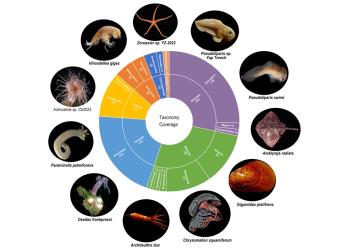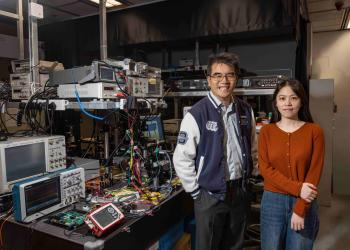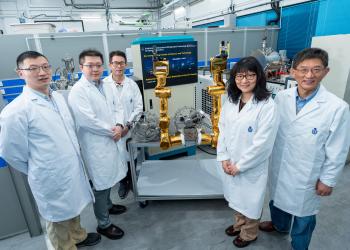Researchers Uncover Novel Molecular Mechanism
Researchers from the Hong Kong University of Science and Technology (HKUST) discovered a novel molecular mechanism that controls the delivery of a key protein in planar cell polarity (PCP) – an important process in our body that regulates cell growth and cell movement, providing useful guidance on the development of new drugs for cancer treatment.
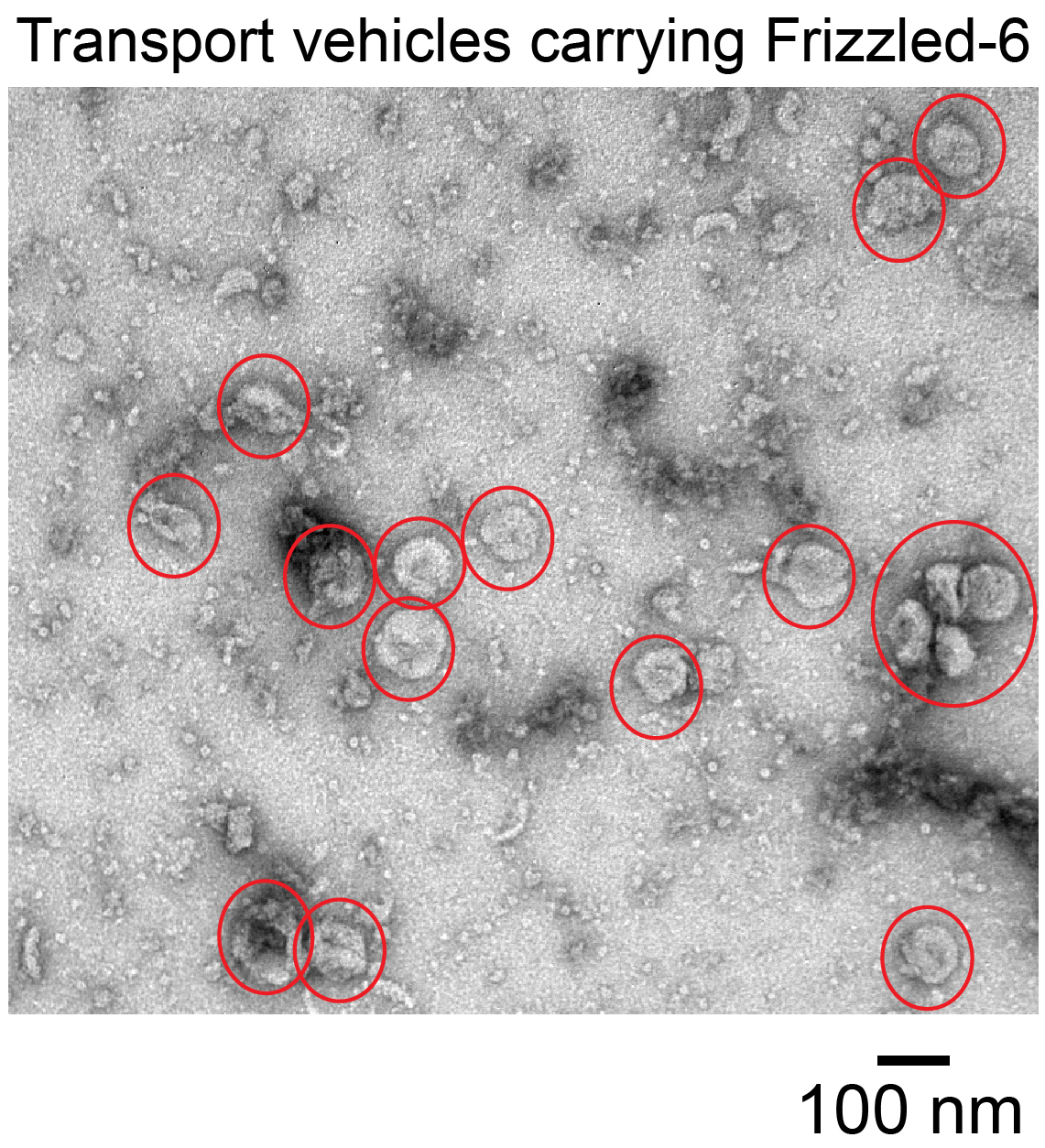
PCP is a biological process critical for tissue development and organ function. Defects in PCP could lead to illnesses such as neurological disorder, skeletal abnormalities or congenital heart disease. Even worse, cancer cells can hijack PCP to promote their own growth and expansion.
To offer new direction for more effective therapeutics, a team led by Prof. GUO Yusong, Assistant Professor of Division of Life Science in the School of Science at HKUST, unraveled how a key protein in PCP called Frizzled-6, was transported from within the cell to the cell surface where Frizzled-6 regulates PCP. Understanding the molecular mechanism behind this transportation process meant scientists can now find a way to block transportation of Frizzled-6 and shut down the PCP process if it is hijacked by cancer cells, thereby hindering cancer progression.
Read more about relevant research:
HKUST Researchers Discover Mutation Route That Helps Find New Therapeutic Lead for Deadly Brain Cancer Patients
Similar to logistics and delivery services, newly produced PCP proteins - just like manufactured goods, need to be processed in plants called endoplasmic reticulum within the cell, where they are folded, modified and packaged. The packed protein would then be delivered through a COPII machinery which produces vehicles that send the protein to Golgi apparatus. The Golgi apparatus is a distribution center within the cell where proteins are packaged into specific transport vehicles, or vesicles, to be delivered to their specific destinations, in this case the cell surface, before proteins can start regulating the PCP process.
In this research, Prof Guo found a special region in Frizzled-6 - namely a polybasic motif, which interacts with SAR1A - a key component of COPII. Blocking the interaction between SAR1A and Frizzled-6 can bring the packaging and delivery to a halt, which in theory should be effective in hindering cancer metastasis.
“It has been known that PCP plays important role in regulating cancer’s growth, but the molecular mechanism that regulates the transport of PCP proteins was largely unclear,” Prof. Guo said. “Our study provides important insight in guiding the rational design of inhibitors to inhibit the cell surface delivery process, and offers a novel therapeutic strategy to downregulate PCP signaling for cancer treatment.”
The findings were recently published in scientific journal Journal of Biological Chemistry. This work was done in collaboration with Prof. JIANG Liwen at the School of Life Sciences of the Chinese University of Hong Kong and Prof. YAN Yan at the Division of Life Science of HKUST.
Find out more on other works of Prof. Guo's:
HKUST Researchers Co-Discover a Novel Function of an Enzyme Offering Insight Into the Pathology of Hereditary Spastic Paraplegia
About The Hong Kong University of Science and Technology
The Hong Kong University of Science and Technology (HKUST) (www.ust.hk) is a world-class research intensive university that focuses on science, technology and business as well as humanities and social science. HKUST offers an international campus, and a holistic and interdisciplinary pedagogy to nurture well-rounded graduates with global vision, a strong entrepreneurial spirit and innovative thinking. HKUST attained the highest proportion of internationally excellent research work in the Research Assessment Exercise 2014 of Hong Kong’s University Grants Committee, and is ranked as the world’s best young university in Times Higher Education’s Young University Rankings 2020. Its graduates were ranked 10th worldwide and top in Greater China in Global University Employability Survey 2019.
For media enquiries, please contact:
Anita Lam
Tel: 2358 6313
Email: anitalam@ust.hk
Lindy Wong
Tel: 2358 6306 / 5190 7882
Email: lindywong@ust.hk








